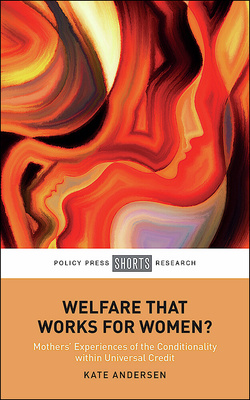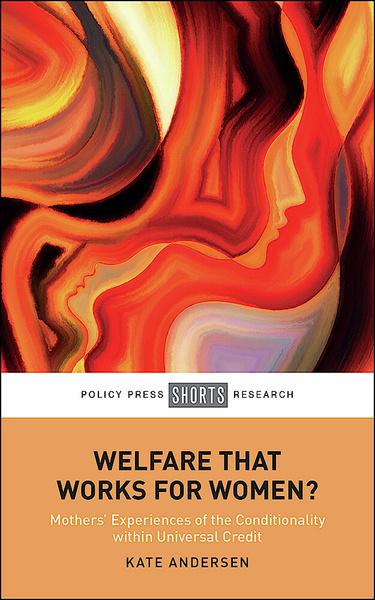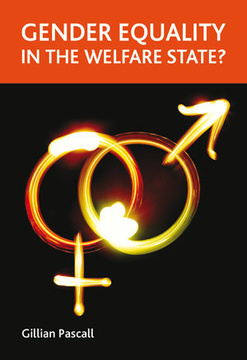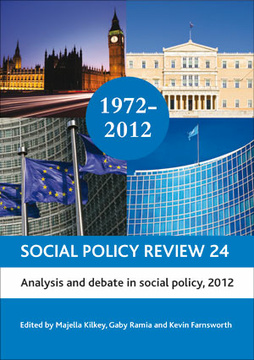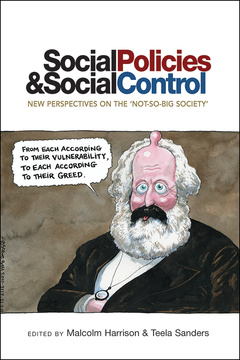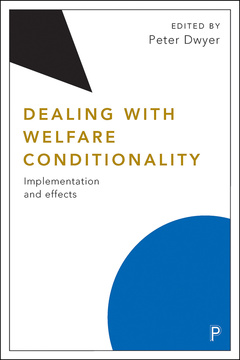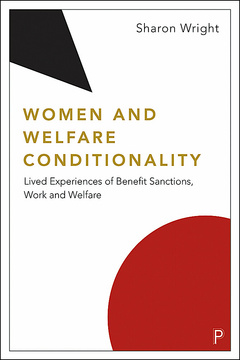Welfare That Works for Women?
Mothers’ Experiences of the Conditionality within Universal Credit
By Kate Andersen
Published
Jan 23, 2023Page count
192 pagesISBN
978-1447366386Dimensions
203 x 127 mmImprint
Policy PressPublished
Jan 23, 2023Page count
192 pagesISBN
978-1447366393Dimensions
203 x 127 mmImprint
Policy PressPublished
Jan 23, 2023Page count
192 pagesISBN
978-1447366393Dimensions
203 x 127 mmImprint
Policy PressFor generations, women have experienced disadvantage in the social security system.
This book analyses fresh empirical evidence which demonstrates the gendered impacts of the new conditionality regime within Universal Credit. It shows how the regime affects women's unpaid caring roles, their position in the paid labour market and their agency regarding engagement in unpaid care and paid work. Ultimately, it highlights the impacts on the position of low-income women in the UK’s social security system and society.
Drawing on in-depth interviews with mothers, this book offers a compelling narrative and crucial policy recommendations to improve the gendered impact of Universal Credit and make the social citizenship framework in the UK more inclusive of women.
“Conditionality in Universal Credit sweeps wide and cuts deep. This excellent book vividly brings to life the experiences of women in a system that devalues unpaid care and proposes practical steps towards a more gender-inclusive system.” Jane Millar, University of Bath
"This book is an important reading for those studying social policy from a gender perspective, and it is a must-have reading for UK policymakers." Social Policy and Administration
Kate Andersen is Research Associate in the School for Business and Society at the University of York.
1. Introduction
2. The Social Security System and Gender: Unpaid Care, Paid Work and Agency
3. Universal Credit and the New Conditionality Regime for Mothers
4. Universal Credit and Unpaid Care: “We’re Doing a Massive Job Anyway”
5. Universal Credit and Paid Work: “You Can Job Search and Job Search and Not Get Anywhere”
6. Universal Credit and Agency: “There’s No Element of Choice”
7. Conclusion







